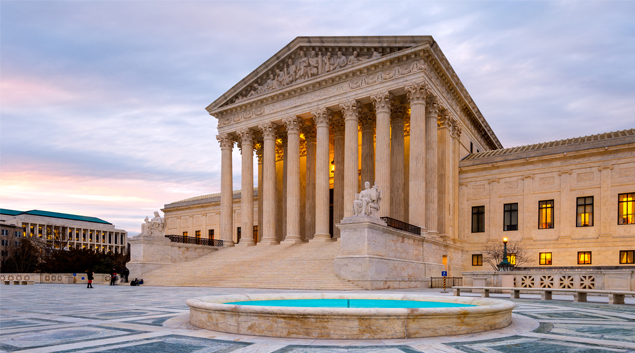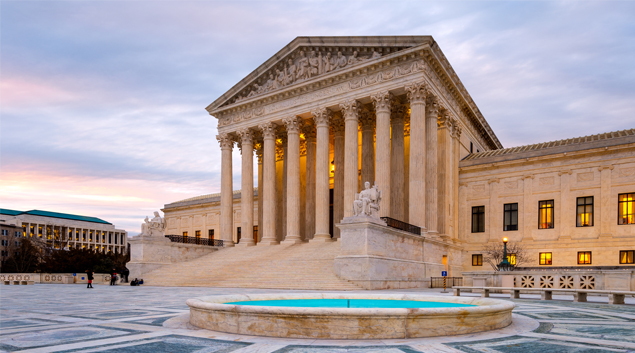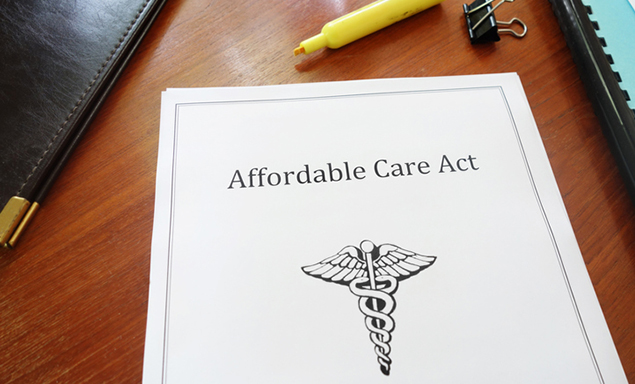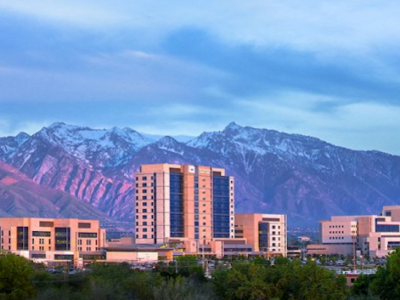
Late final week, the Supreme Courtroom agreed to resolve whether or not outgoing President Donald Trump and his administration can enable states to tack work necessities onto their Medicaid applications, a proposal that has been shot down within the decrease courts.
At concern is the administration’s approval of Medicaid work necessities in Arkansas and New Hampshire. In a short order, the Justices granted assessment in Azar v. Gresham and Arkansas v. Gresham, and consolidated the instances for an hour of oral argument. The Justices are being requested to resolve whether or not the U.S. Courtroom of Appeals for the District of Columbia erred in concluding that the secretary of Well being and Human Companies might not authorize demonstration initiatives to check the work necessities to facilitate the transition of Medicaid beneficiaries to industrial protection.
WHAT’S THE IMPACT?
HIMSS20 Digital
Study on-demand, earn credit score, discover merchandise and options. Get Began >>
Work necessities have been controversial in some states. In February, for instance, a federal appeals court docket dominated that the Trump Administration unlawfully allowed Arkansas to implement a piece requirement on these coated beneath that state’s Medicaid growth program, echoing a decrease court docket ruling from 2019.
Arkansas was the primary state to create such a piece requirement, tasking enrollees aged 19-49 with clocking 80 hours per thirty days on work, volunteering or job searching, which then needed to be reported by way of Web or telephone. In keeping with Arkansas On-line, 18,164 individuals misplaced protection in the course of the 9 months the requirement was in impact, and have been barred from re-enrolling for the rest of the yr.
The unanimous determination within the Arkansas case, written by Reagan appointee Choose David Sentelle, upheld a district court docket ruling that discovered the administration had not analyzed whether or not work necessities would promote the first goal of Medicaid, which is to “furnish medical help.”
In issuing approvals of state work-requirement waivers, the administration had argued that the transfer would assist some beneficiaries transition to personal insurance policies and will result in higher well being outcomes, and assist states preserve monetary sources, CNN reported. The administration started granting state work requirement requests in 2018.
In keeping with a weblog on the Supreme Courtroom’s web site, the instances will doubtless not be argued till late winter or early spring. On Friday, regulation professor Stephen Vladeck mentioned on Twitter that President-elect Joe Biden might rescind the federal government’s approval of labor necessities when he takes workplace, though this could doubtless take time, opening up the chance that the state would pursue an administrative listening to to problem any rescission.
In Arkansas, greater than 18,000 individuals misplaced protection in 2018 earlier than the courts stepped in.
THE LARGER TREND
In October, the Facilities for Medicare and Medicaid Companies’ announcement of labor necessities in Nebraska drew push-back from Nebraska Appleseed, a nonprofit centered on, partly, selling entry to inexpensive healthcare. It referred to as the Heritage Well being Grownup waiver “pointless” and “a step within the mistaken route.”
“By the Division of Well being and Human Companies’ personal estimates, the waiver will lead to tens of 1000’s of individuals being locked out of dental, imaginative and prescient, and over-the-counter drug advantages,” the group wrote on its web site. “The waiver doesn’t ‘improve’ advantages; it’s certainly designed to deprive enrollees of these advantages.
“Nebraska doesn’t want a sophisticated waiver system that makes it more durable for individuals to entry the care that they want.”
Comparable necessities have been lately launched in Georgia. Particularly, CMS introduced the approval of Georgia’s new Medicaid part 1115 demonstration referred to as “Pathways to Protection.” It requires working-age Georgia adults who’re ineligible for Medicaid to decide into Medicaid protection by taking part in qualifying actions reminiscent of work and training, in addition to assembly premium and earnings necessities.
This is applicable to these between the ages of 19 and 64, with earnings as much as and together with 100% of the federal poverty degree, and is efficient by September 30, 2025, with implementation starting July 1, 2021.















